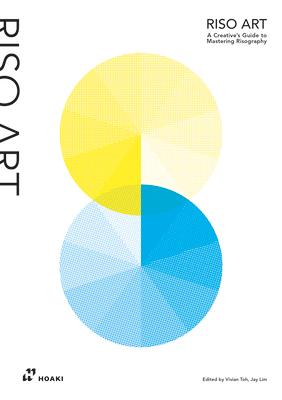In recent years risography has captured the attention of printers and artists, especially in independent and self-publishing circles, given the technical and visual qualities it offers. Varied and vivid spot colors, the warmth of the finishes, and occasional imperfections in uniformity and register are just some of these attractive features. The book begins by giving readers a brief history of the Risograph while outlining the basic principles of the printing process, including the equipment, tools and materials needed to get started. Designed mainly for high-volume photocopying and printing, Risographs are far less expensive than conventional photocopy machines and laser or ink printers. Rich in illustrations, pictures, detailed instructions and infographics, this practical guide to Risograph printing will teach readers how to set up a Risograph, how to prepare files to print, how to make overprints and knockouts, how to choose paper, how to handle freshly printed works, what ink to use and about any additional equipment they will need to become a Riso master. An ideal primer for novice users of a Riso printer, readers will also learn how to apply artistic printing techniques that will allow them to print with brighter, more expressive, saturated colors that, unlike photocopy ink, do not fade over time. The book also includes profiles of notable printers, with one featured work of Riso art and the printing technique used. In addition to examples of printed products, readers will find works from contributing print shops and information about design studios and artists from around the world. The book will broaden the reader's printing horizons and illustrate the extensive variety of possibilities offered by this relatively straightforward technique, inspiring them through the prints of others to create their own riso art.

Riso Art: A Creative's Guide to Mastering Risography
In recent years risography has captured the attention of printers and artists, especially in independent and self-publishing circles, given the technical and visual qualities it offers. Varied and vivid spot colors, the warmth of the finishes, and occasional imperfections in uniformity and register are just some of these attractive features. The book begins by giving readers a brief history of the Risograph while outlining the basic principles of the printing process, including the equipment, tools and materials needed to get started. Designed mainly for high-volume photocopying and printing, Risographs are far less expensive than conventional photocopy machines and laser or ink printers. Rich in illustrations, pictures, detailed instructions and infographics, this practical guide to Risograph printing will teach readers how to set up a Risograph, how to prepare files to print, how to make overprints and knockouts, how to choose paper, how to handle freshly printed works, what ink to use and about any additional equipment they will need to become a Riso master. An ideal primer for novice users of a Riso printer, readers will also learn how to apply artistic printing techniques that will allow them to print with brighter, more expressive, saturated colors that, unlike photocopy ink, do not fade over time. The book also includes profiles of notable printers, with one featured work of Riso art and the printing technique used. In addition to examples of printed products, readers will find works from contributing print shops and information about design studios and artists from around the world. The book will broaden the reader's printing horizons and illustrate the extensive variety of possibilities offered by this relatively straightforward technique, inspiring them through the prints of others to create their own riso art.